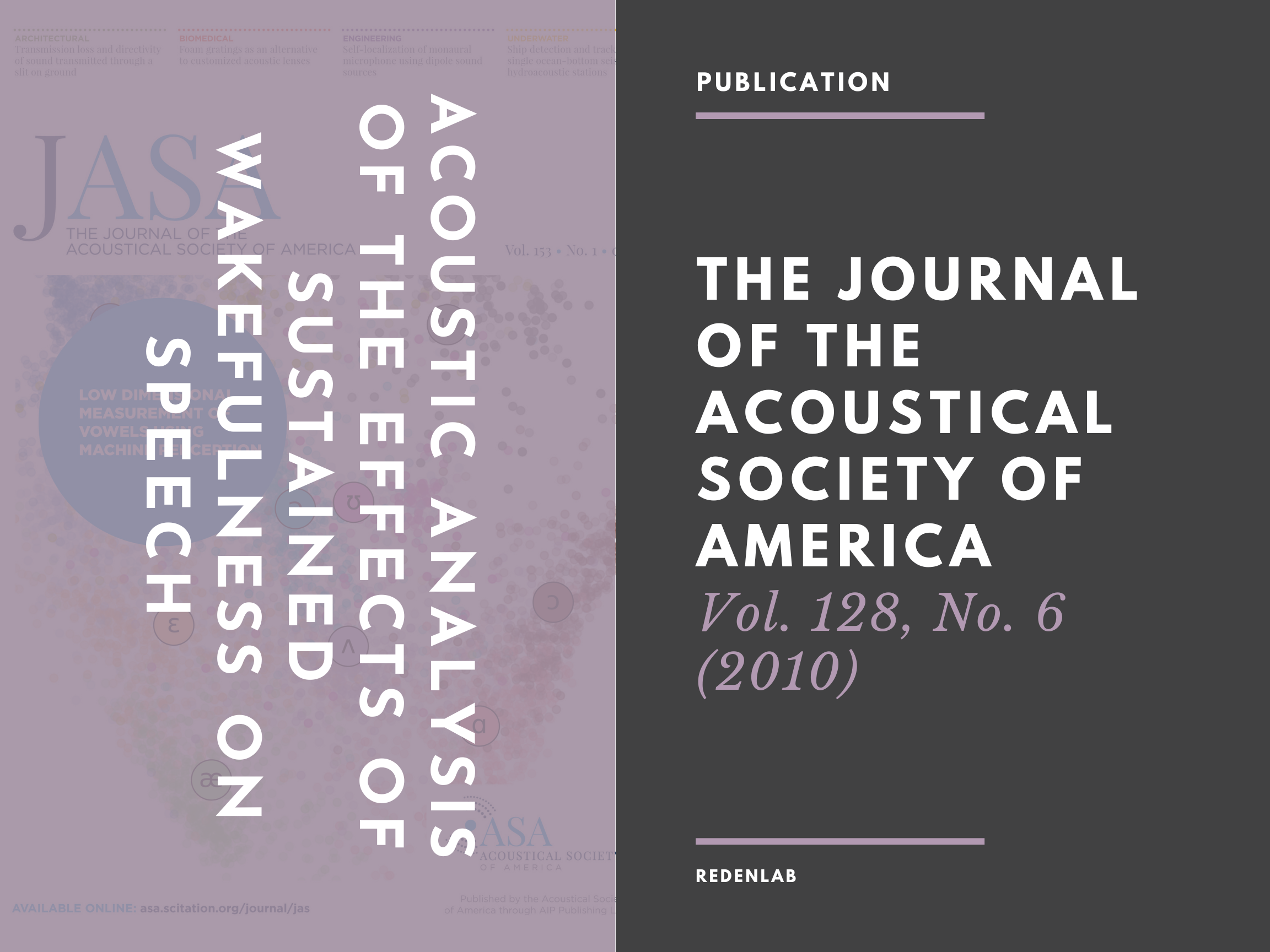Acoustic analysis of the effects of sustained wakefulness on speech

Exposing healthy adults to extended periods of wakefulness is known to induce changes in psychomotor functioning. The effect of fatigue on speech is less well understood. We examined the pitch and timing of neurologically healthy individuals over 24 h of sustained wakefulness. Speech samples were systematically acquired (e.g., every 4 h) from healthy adults over 24 h. Stimuli included automated and extemporaneous speech tasks, sustained vowel, and a read passage. Measures of timing, frequency and spectral energy were derived acoustically. The effect of fatigue on speech was found to be strongest just before dawn (after 22 h). These findings suggest that acoustic methodologies provide objective data on central nervous system functioning and that changes in speech production occur in healthy adults after just 24 h of sustained wakefulness.
To find out more about the study, click here.
